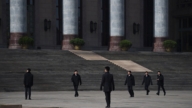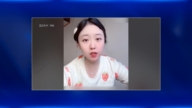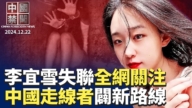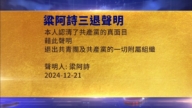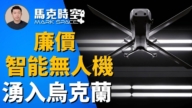【新唐人2013年08月13日讯】在中国大陆,高官退离休后到企业任职的现象正在悄然兴起。今年7月底,三位中共原省部级高官同时加盟中国第三大重型汽车制造商——中国重汽集团,担任独立董事,中共老干“退而不休”引发巨大非议。各界认为,“高官独董”现象既是中国官商勾结的真实写照,也是中国这个畸形社会里的变相权力寻租和腐败的表现。
大陆媒体报导,加入中国重汽的三位重量级独立董事,分别是贵州省原省长石秀诗、山东省原省长韩寓群和国税总局原副局长崔俊慧,他们的年薪为18万元人民币,任期3年。
有关数据表明,类似的高官独董现像在大陆企业,尤其是上市公司非常普遍。因此,业内人士也将独董制,戏称为老干部活动中心。这些企业为何对退休高官如此推崇呢?
中国企业高级顾问何军樵:“退休的高官,他虽然已经退休了离开了这个岗位,但是他的部下还在、他的亲朋好友还在,所以说他的价值依然还在,他依然能够发挥他很大的影响力。”
虽然高官独董给一些企业带来了巨大的利益,却备受相关评论人士和民众的诟病,网上也因此出现了一面倒的批评,业内人士也对此表示极大的担忧。
何军樵:“其实在金融领域,我也看到有这样的一些现象,具体的内幕是什么样,我不予置评,但是这样一种现像在这个国家出现,我觉得也是这个畸形经济所产生的这样一个结果。如果是在一个公正的市场经济环境里面,人脉能够起一些作用,但是它一定不会逾越法治的范围,但是在这样一个国家就很难讲。”
独立董事制度的本意是通过聘请一定比例独立的董事,对A股上市公司的大股东和经营层形成权力制衡,维护中小股东的权益。但实际上,由于大陆的独立董事通常是由控股大股东指定的,反而使得事与愿违。
金融分析师任中道:“他们上市公司聘请的独立董事偏偏为这些大股东们说话,来帮他们开路。在竞争当中不是按照公司的业绩来导致股价的上升或者下降,而是靠这个关系来影响。”
企业观察人士发现,大部分企业雇佣的退休高官,退休之前都是担任与企业领域相关的职务。例如光大银行独立董事周道炯曾担任过中国证监会主席一职,而中国铝业独立董事吴建常曾任冶金工业部副部长、国家冶金工业局副局长等职。对此,公众担心这种现象会影响市场竞争的公平性。
何军樵:“在这样一个计划市场经济的畸形社会里,这样一个畸形的经济结构里面,权力寻租,市场寻求权力是非常正常的事情。逾越法治、违法乱纪的事情也是非常正常的事情。总而言之,这个国家已经被这个官僚集团,以及这个官僚集团代表的背后的若干个利益集团,这个国家的经济利益应该是被他们所瓜分的。”
其实,大陆《公务员法》明文规定:“公务员辞去公职或者退休的,原系领导成员的公务员在离职3年内,不得到与原工作业务直接相关的企业,或者其它营利性组织任职;不得从事与原工作业务直接相关的营利性活动。”
任中道:“中共它导致了这样一个权钱的交易,无论这个人在位不在位,他还会延续这样的发生,所以这个权钱交易始终在中国大陆有这样的影响,有些外资企业进入中国大陆之后,也被感染了,符合所谓的中国国情,受它的影响必须得去行贿,才能打开自己在大陆经营的路子。”
一项针对沪深两市上市公司的调查显示,中国市值排在前50的上市公司中,有34位政府退休高官任独立董事。
采访编辑/张天宇 后制/李月
Retired Cadres Sitting High in Corporate Circles
In China, more and more retired high-level officials
are working in enterprises.
By the end of July, three former provincial ministry-level
officials joined the China National Heavy Duty Truck Group,
China’s third largest manufacturer of heavy-duty vehicles,
as independent directors.
This phenomenon has triggered widespread criticism.
It reflects collusion between business and politicians,
as well as corruption and abuse of power in Chinese society.
According to Chinese media, the three “heavyweight"
independent directors are
Shi Xiushi, former governor of Guizhou Province,
Han Yuqun, former governor of Shandong Province and
Cui Junhui, former deputy director of National Taxation Bureau.
Their annual salaries are 180,000 yuan ($29,000) each,
for a term of three years.
Related data showing senior officials as independent directors
is a popular phenomenon in China’s listed companies.
Insiders also refer this phenomenon as “the Veteran Club."
Why do companies respect retired senior officials so much?
He Junqiao, Chinese enterprises senior adviser:
“Retired senior officials still have their subordinates in charge,
as well as their family and friends.
So they have huge value and are able to have great influence."
Although retired officials bring huge benefits to enterprises,
people are criticizing them.
Much of the criticism online has been one-sided.
This phenomenon is also causing concern for those inside.
He Junqiao: “In fact I see this in the financial sector as well.
I won’t comment on the details.
This is the result of a deformed economy.
Networking plays a certain role in a fair market,
but can’t go beyond the legal system.
But in a country such as China it’s hard to say."
The independent director system is to hire them
and post balances and restrictions to A-share listed companies,
so as to maintain the interests of minority shareholders.
But in fact, independent directors are usually designated
by the controlling shareholders.
Ren Zhongdao: “They hire independent directors
who speak for major shareholders.
Competition is not affected by an enterprise’s performance,
but by this relationship."
Observers found out that most hired officials had worked in
related sectors before they retired.
Zhou Daojiong, independent director of Everbright Bank,
was chairman of the China Securities Regulatory Commission;
Wu Jianchang, independent director of Chalco,
served as deputy minister of Metallurgical Industry and the
vice chairman of the National Bureau of Metallurgical Industry.
Many in the public sphere fear this phenomenon will affect
the fairness of competition in the market.
He Junqiao: “In such a deformed society, abuse of power
is normal. It is also normal to go beyond the legal system.
All in all, this country is divided by bureaucrats and
a number of interest groups behind them.
They’ve divided up the economic interests of the country."
In fact, China’s “Civil Servant Law" expressly states that:
“Resigned or retired civil servants holding leaders roles
cannot work in enterprise or other profit-making
organizations that are related to their formal positions
within three years after leaving their positions;
they must not engage in profit-making
business activities related to formal work."
Ren Zhongdao: “The Chinese Communist Party (CCP)
brings about power and money transactions,
regardless of whether a person holds a position or not.
This bartering has always had an influence in China.
Some foreign companies, after entering China,
have been infected by China’s so-called national condition.
They must bribe in order to open up their network in China."
A survey of listed companies at the Shanghai and Shenzhen
markets shows that among the top 50 companies listed,
34 have retired officials as their independent directors.



